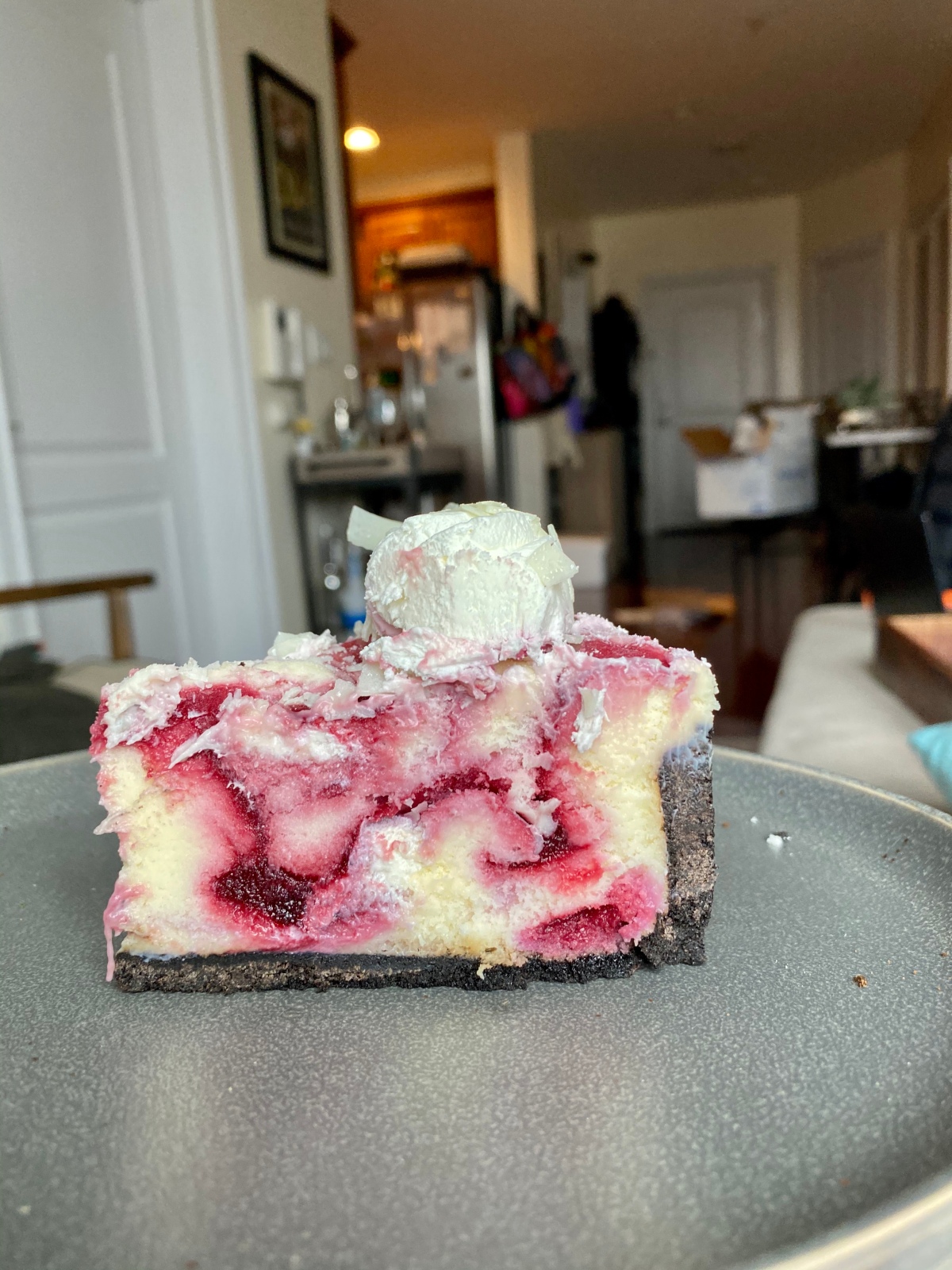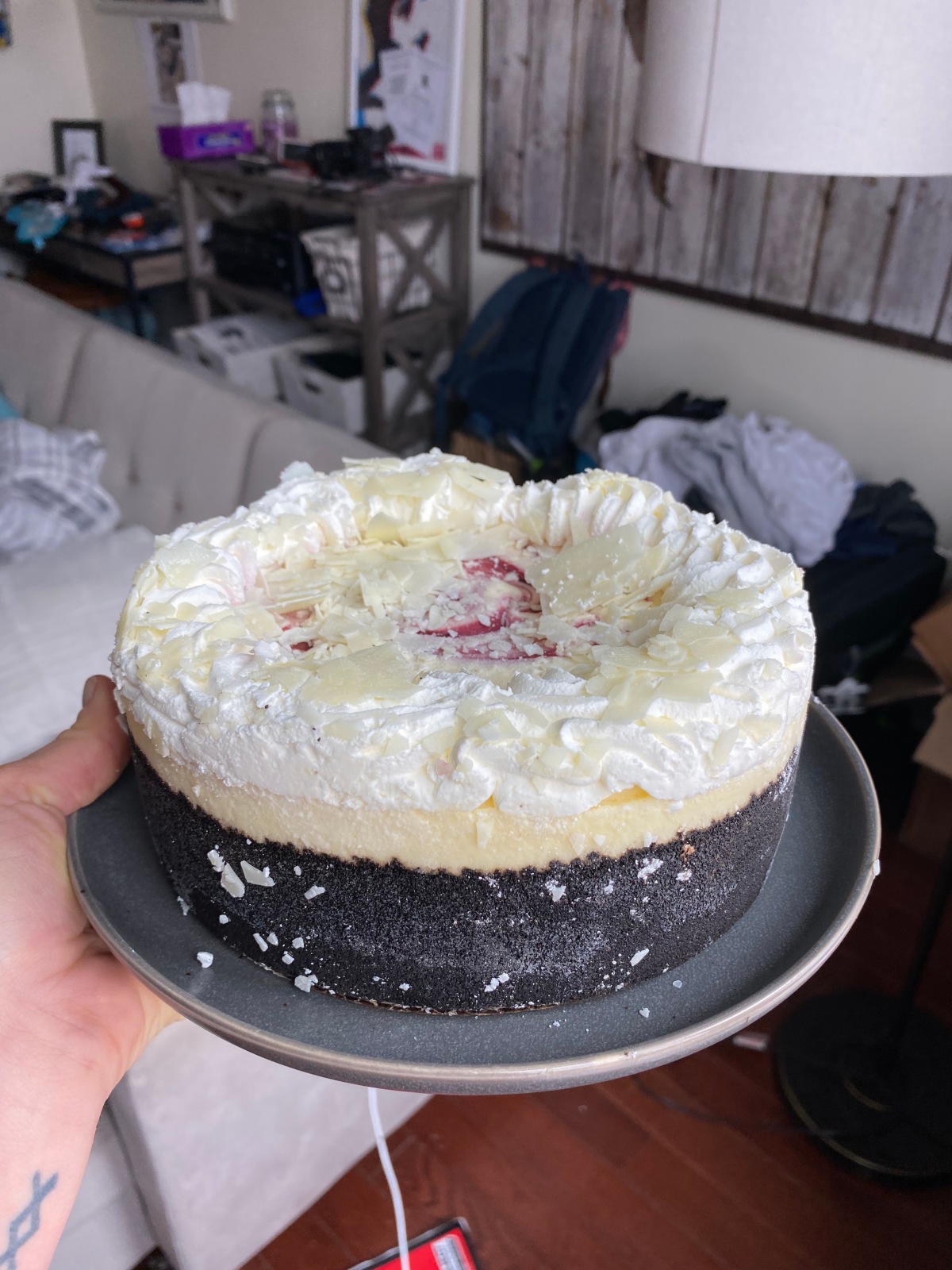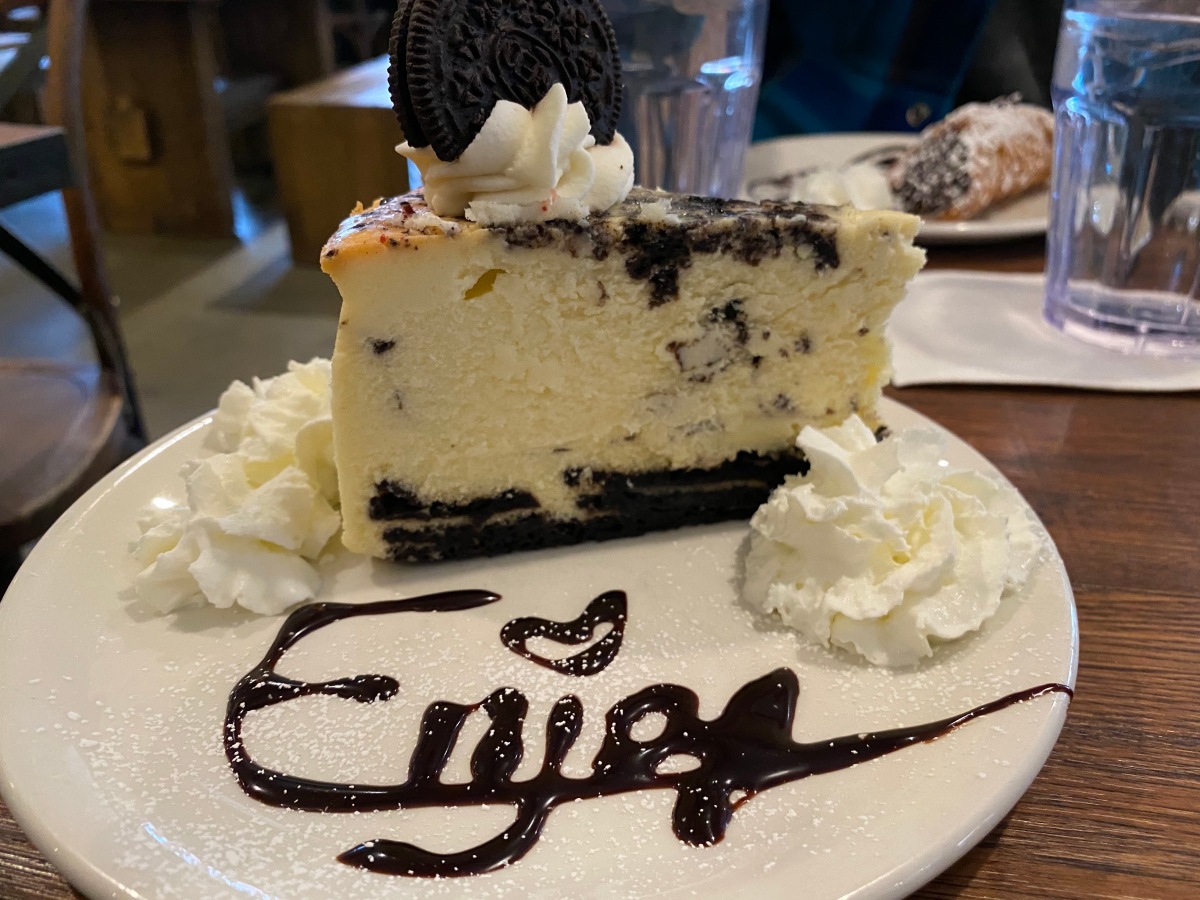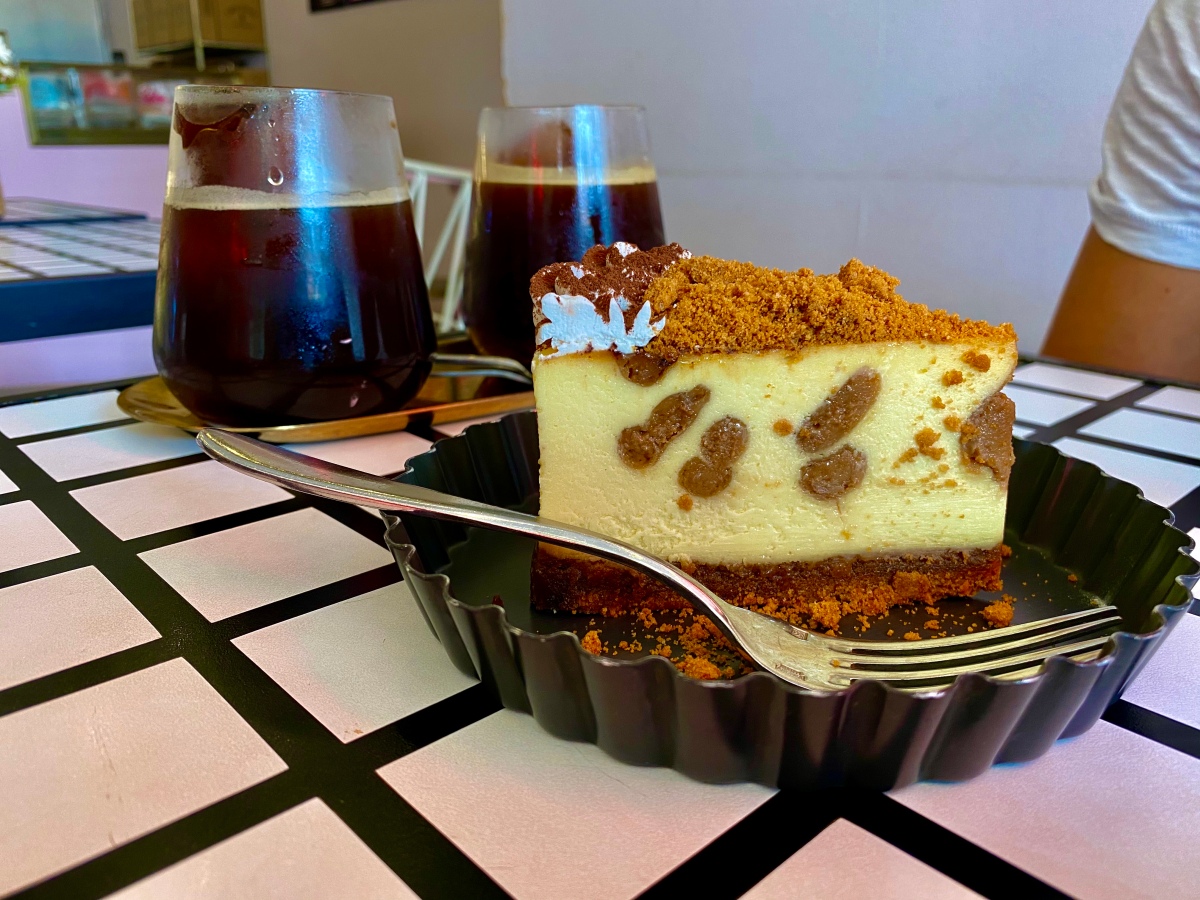Before diving into the history of cheesecake, let’s discuss the important question, “Is cheese a dessert?”
This question has been a dividing topic at the end of many a meal where “cheese plate” is listed among tiramisu and key lime pie. I find the idea of cheese for dessert preposterous. Give me decadent chocolate cake, an ice cream sundae, or a cookie. Not a hunk of gouda or slice of cheddar.
It turns out not everyone seems to agree, and it begs the question,
“What is a dessert?”
According to Merriam Webster, a dessert is “a usually sweet course or dish (as a pastry or ice-cream) usually served at the end of a meal.”
The word “usually” opens up an infinite amount of interpretations, making this definition fairly useless.
To me, a dessert is a sweet, indulgent treat enjoyed after a meal. A savory item is simply an additional course. However, if I eat chocolate at 8am, is it dessert or breakfast? The plot only thickens as we consider other “breakfast” items. Waffles are a dessert in most parts of the world, but they are seen as breakfast in the USA. Pancakes have the nutritional make up of many “desserts,” yet we’d never follow up a roast with a big stack of flapjacks. Then don’t even get me started on donuts! I see people chowing down on the sugary confections on their morning commute, but they might as well be eating cookies.
Perhaps, “dessert” is a relative term dependent on a culture and an individual. At the end of the day, I’m not personally affected as to whether you define your 10am bowl of ice-cream as breakfast or dessert.
All that aside, there is one exception for when I will willingly order something with “cheese”in the title for dessert. And that’s Cheesecake.
Indulging in a smooth, rich, creamy sweet slice of thick luscious cheesecake is a special treat that I quite enjoy.


Who invented cheesecake anyways?! I dove into the find out!
The History of Cheesecake
I was surprised to discover the dessert originated in Greece!
Anthropologists discovered cheese molds on the Greek Island of Samos that date back to 2,000 BCE. These first cheesecakes were probably comprised of cheese, flour, and honey. The calorically dense nature of the dish makes it a good source of energy. It was given to athletes during the Olympics starting in 776 BC to improve performance! Let’s fast forward a few hundred years to the rise of the Roman Empire. Cheesecake was one of the many spoils of war, and the Romans added eggs, served it warm, and renamed it “libuma.” It became a popular dish for special occasions, particularly for the big cheeses at the time.
The history of cheesecake continues with the Romans, who carried the dish across Europe as Imperialism continued, and various cultures put their own spin on it. Cheesecake as we know it today started to appear in the 1800s when bakers added beaten eggs and removed yeast. Sure enough, the recipe traveled across the Atlantic to America.
2. Slice from Cake Spade in Singapore
The dessert has continued to evolve and change across the globe. Ranging from ricotta-based cheesecake in Italy, to ube cheesecake in the Philippines, to the ever-popular cream-cheese-based New York Cheesecake.
To sum it all up, I think cheese is only a dessert when you add “cake” to the end. Disagree? Let’s keep the debate going!


11 thoughts on “The Unique History of Cheesecake”
totally agree Katie! mmmm cheesecake!
I love cheesecake! If you like yummy desserts, go to my site called kidsincovid in a post called recipes. In a few minutes we’ll also post a great pumpkin bread recipe. It turned out great
Great! Will have to check it out!
Cheesecake IS delicious. I’m fortunate enough to work as a cheesemonger, so here are a few fun ideas to try: Clawson’s Lemon Stilton, delicious with toasted flaked coconut and coffee; blue cheese with honey and pears (Gorgonzola is traditional, try Sartori’s Dolcina for extra-creamy elegance on a budget); and of course, the classic Brie with honey and fruit. It does, admittedly, work best if a) the rest of your meal has consisted of small courses and b) you have company to chatter with, a reason to linger over coffee or digestif at meal’s end. Thanks for the enjoyable post!
Those sound delicious, particularly the one with coconut and coffee. Thank you for the suggestions!
Exactly! Cheesecake is the most flavorful and yummy desserts!
Pingback: Is Cheese a Dessert? | Sharing Truth,Inspiration, and Hope -Wherever we may find it.Windows From Heaven Photography June 2020
Pingback: Lobster: The Ultimate Tale of Rags to Riches – The Frugal Foodies
Cheesecake is always a dessert; especially pumpkin cheesecake. I had to throw that in as it is one of my favorites. Great post.
Pingback: The Curious Life of Pie – The Frugal Foodies
Pingback: The Curious Life of Pie – The Frugal Foodies